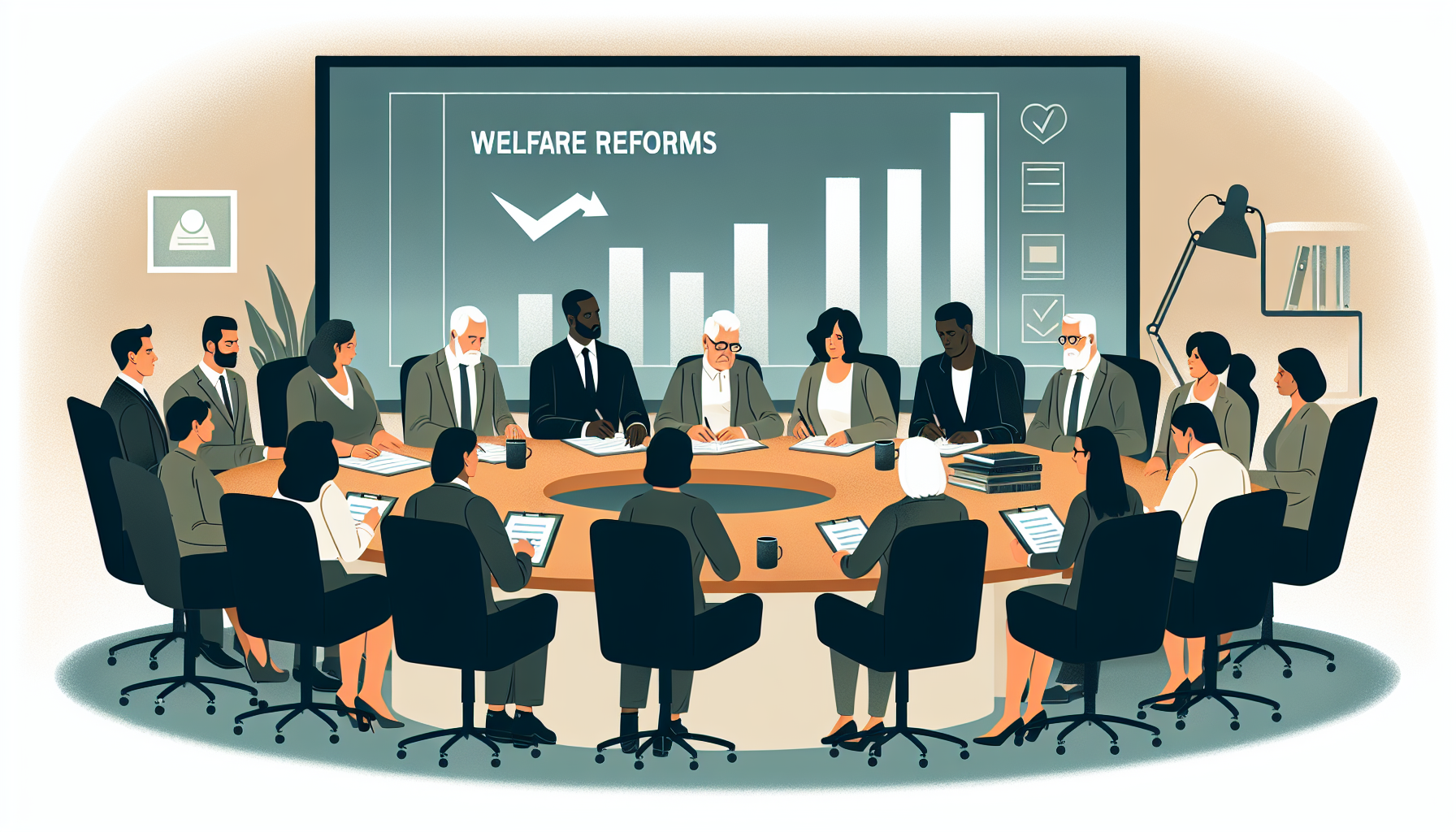Title: Striking a Balance: The Changing Landscape of Welfare Reform and What It Means for Us
Dear readers,
In the ever-evolving theater of politics and social policy, the script often goes through multiple rewrites. Recently, the UK government’s welfare reform bill has made its way back into the spotlight, with new concessions that have left many analyzing its wider implications. This isn't just a cut-and-dry story of policy change; it's a narrative that touches the core of societal values and personal livelihoods.
So, grab a cup of tea, and let’s unpack what’s happening with Personal Independence Payments (PIP) and Universal Credit (UC), and why this matters not just for beneficiaries, but for every one of us engaged in the societal web.
A Recap: PIP and the Promise of Support
Let’s start with PIP, a lifeline for many dealing with long-term health conditions in England and Wales. With more than 3.7 million recipients, PIP is designed to provide financial support irrespective of income or savings. It’s a benefit that recognizes the challenges of daily living and mobility that come with certain physical and mental health issues.
The recent reforms have been a mixed bag of intentions and executions. Earlier in the year, the government proposed a tightening of PIP assessments—a move that was met with significant resistance. More than 120 Labour MPs threatened to derail the new legislation, defending the vulnerable communities that would be affected by such changes. Thus, a decision emerged: those already receiving PIP would remain untouched by the proposed reforms.
However, new claimants would face new hurdles—though even this detail is currently in limbo, awaiting the outcomes of a broader review. This ongoing delay and restructuring raise a crucial question: How do we differentiate between fiscal responsibility and the moral obligation to protect society's most vulnerable?
Universal Credit: An Attempt at Reformation
Universal Credit—a scheme intended to simplify the benefits system—has also come under the microscope. The government’s agenda includes changes to the health-related top-ups on UC, initially designed to support those incapable of work due to health issues. These alterations, however, have set the stage for a heated debate.
The proposal was to decrease the incapacity top-up significantly for new claimants and to postpone eligibility for young adults until the age of 22. Again, these changes hinge on proving a delicate balance: encouraging work while acknowledging the legitimate barriers faced by individuals with disabilities.
But more than just numbers on a page, the repercussions are real and measurable. The DWP estimates that future alterations to PIP and UC might push up to 150,000 individuals toward relative poverty by 2030. Is this a necessary sacrifice for economic sustainability, or a sign of policies losing sight of their human impact?
The Politics Behind the Policy
The political maneuvers surrounding welfare reform reveal a chess game where taxation and public expenditure are king and queen. The Chancellor's original savings target of £5.5bn has been significantly reduced, leaving predictions of no net savings by 2029/30. This financial recalibration highlights the mounting pressure on government budgets and raises speculation about the potential for tax increases—a point on which Prime Minister Sir Keir Starmer remains noncommittal.
Beyond the walls of Parliament, these discussions ripple through communities. They spark debates at dinner tables, influence voter behavior, and redefine the social contract. The question becomes: Are we positioning welfare reform as a stepping stone towards greater societal equity, or simply as a budget adjustment in disguise?
A Broader Reflection: Humanizing Welfare
As the government navigates these policy revamps, we remember the core essence of welfare: to serve as a pillar of support and an enabler of potential. This commitment is not merely an economic task but a holistic obligation that encompasses dignity, opportunity, and empathy.
It's crucial for all of us—not just policymakers—to consider how these changes reflect our collective priorities and values. In a society measured by how it treats its most vulnerable, every reform, every debate, and every decision echoes beyond the immediate beneficiaries.
Until next time—keep questioning and keep caring.
Yours in contemplation,
A Seeker of Social Justice & Equity

